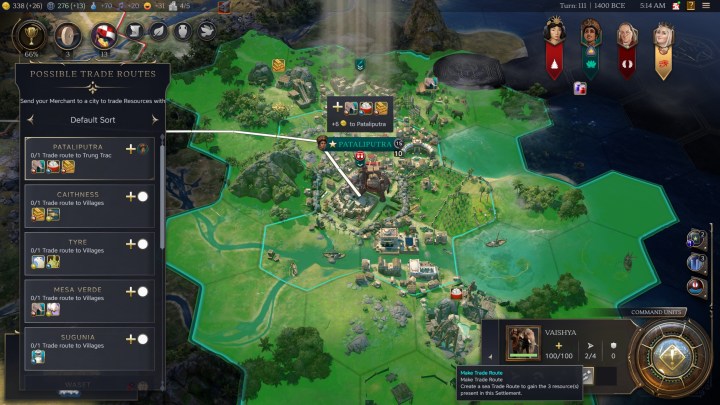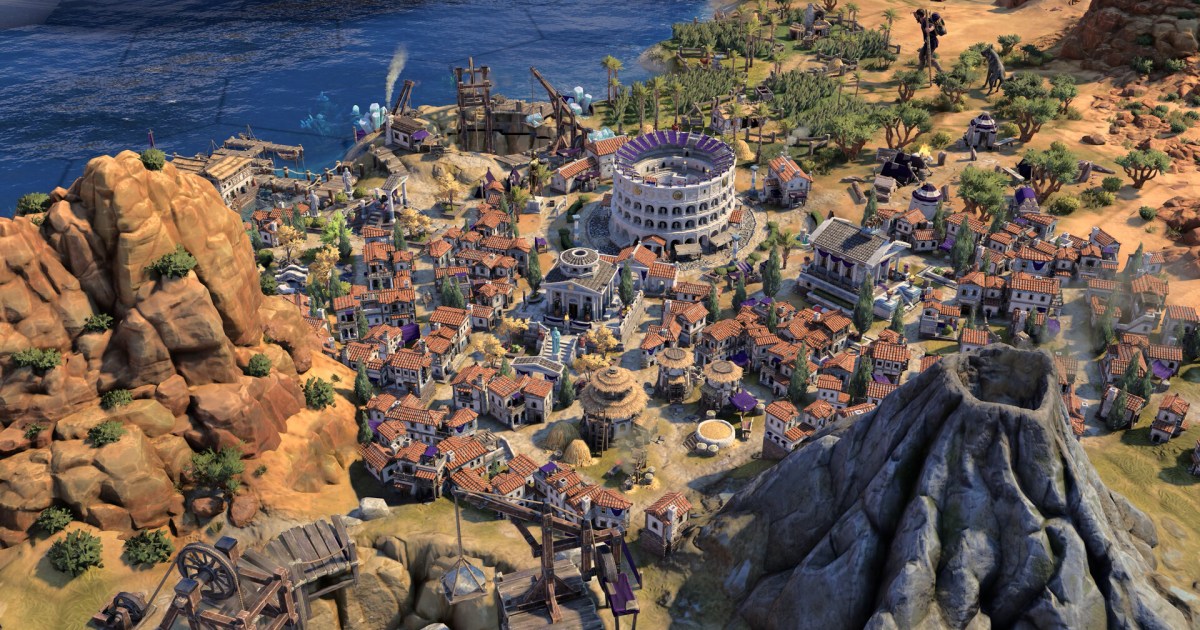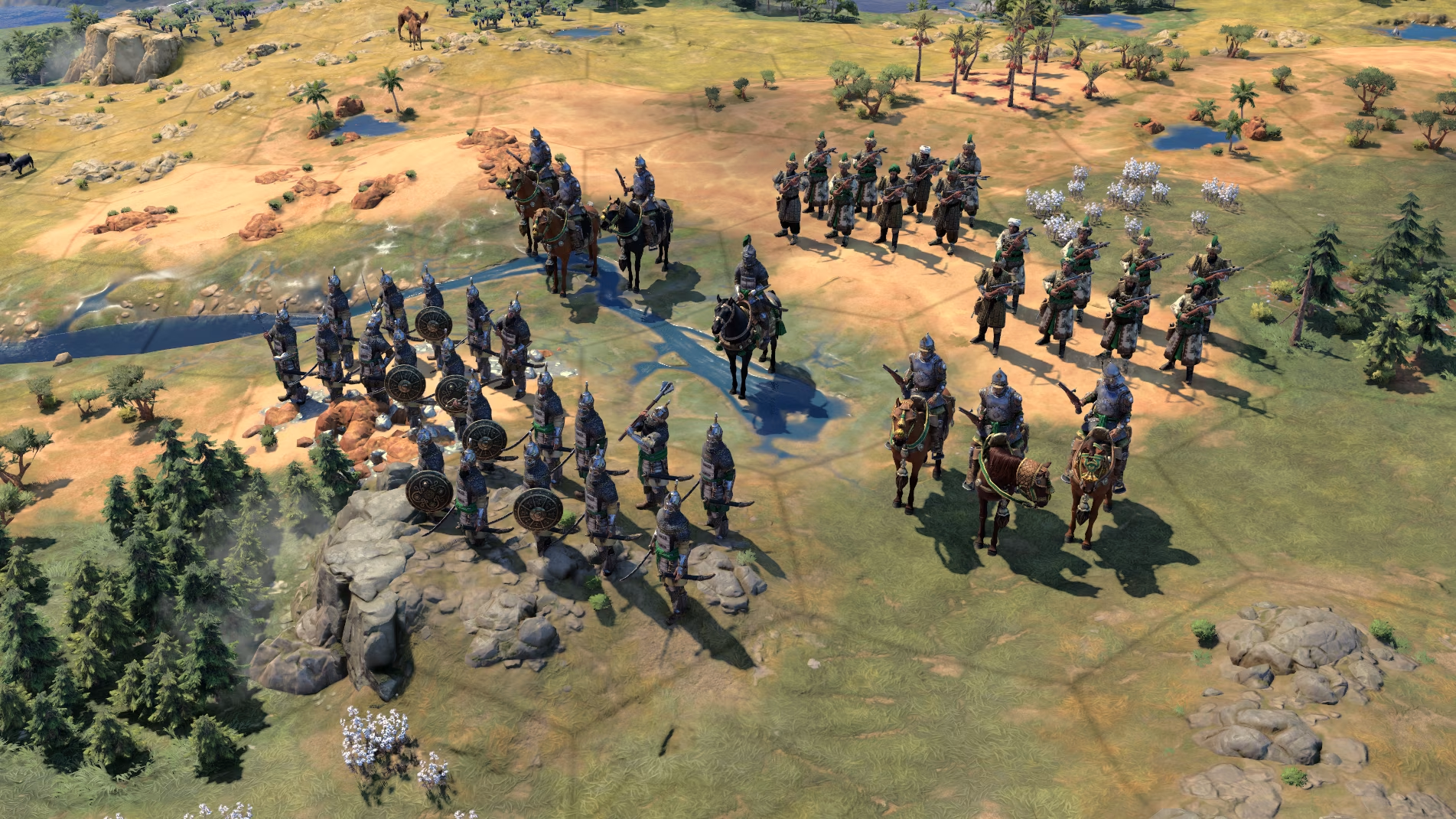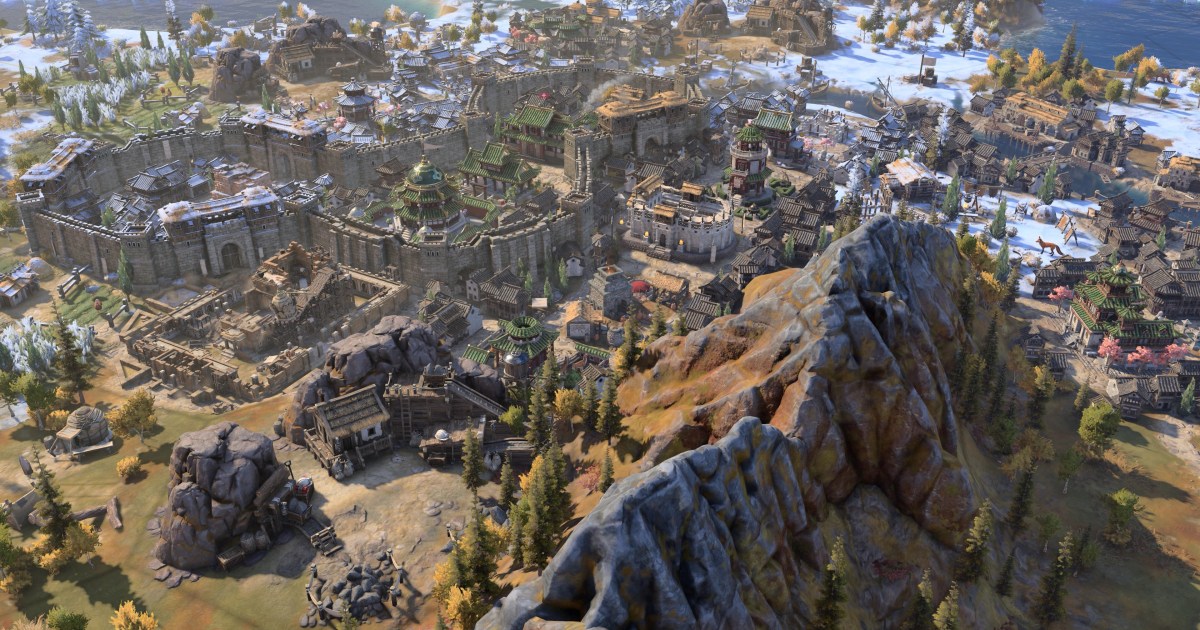Trade routes are crucial for long-term success in Civilization 7, even if your ultimate goal is world domination. Leveraging the resources of other civilizations can provide significant advantages, regardless of your chosen victory path. While trade routes have been a series staple, Civilization 7 introduces some key changes. This guide will walk you through establishing trade routes and maximizing their benefits.
 Establishing a trade route in Civilization 7. 2K Games
Establishing a trade route in Civilization 7. 2K Games
Setting Up Your First Trade Route
Unlike previous iterations, Civilization 7 streamlines trade route establishment, removing the diplomatic hurdles. You no longer need to expend Influence to initiate trade. Follow these steps to set up your first trade route:
Locating a Trade Partner
Begin by exploring the map and identifying another civilization. This initial exploration phase is essential for discovering potential trade partners and their resources.
Researching the Code of Laws
While exploring, prioritize researching the Code of Laws in the Civic Tree. This civic unlocks the ability to train or purchase Merchant units, the key to establishing trade routes.
Training or Purchasing a Merchant
Once you’ve researched the Code of Laws, train or purchase a Merchant unit. Merchants are specialized units responsible for establishing and maintaining trade routes.
Evaluating Trade Route Options
Selecting a Merchant unit reveals available and unavailable trade routes, along with the potential resources gained from each. Trade routes might be unavailable if your Merchant cannot physically reach the destination or if you have a negative relationship with the target civilization’s leader.
Sending Your Merchant
Choose a viable trade route and the game will highlight the destination on the map. Direct your Merchant unit to travel to the target city or town.
Establishing the Trade Route
Once your Merchant arrives, click the icon depicting two arrows pointing in opposite directions to establish the trade route. This action will “consume” your Merchant unit, permanently assigning them to the trade route.
Benefits of Trade Routes
Establishing trade routes provides several crucial benefits:
Resource Acquisition
Gain access to the natural resources present at the destination city or town. This can significantly boost your resource stockpile and unlock crucial advancements.
Economic Growth
Trade routes contribute to your civilization’s economic growth, providing additional gold and other economic bonuses. This increased income can fuel further expansion and development.
Strategic Advantages
Even if your long-term goal involves military conquest, early trade routes can provide a temporary economic advantage. Leveraging the resources of other civilizations before engaging in conflict can give you a crucial edge.
Maximizing Trade Route Efficiency
Consider these additional tips for maximizing the benefits of your trade routes:
Prioritize Internal Trade Routes
Early in the game, focus on establishing internal trade routes between your own cities. This boosts early economic growth and helps lay a strong foundation for future expansion.
Evaluate Resource Needs
Carefully assess your civilization’s resource needs before establishing trade routes. Prioritize routes that provide resources you lack or are in short supply.
Conclusion
Trade routes are a fundamental mechanic in Civilization 7, offering significant advantages for both peaceful and aggressive playstyles. By following these steps and strategically managing your trade routes, you can establish a thriving civilization and pave the way for victory.











